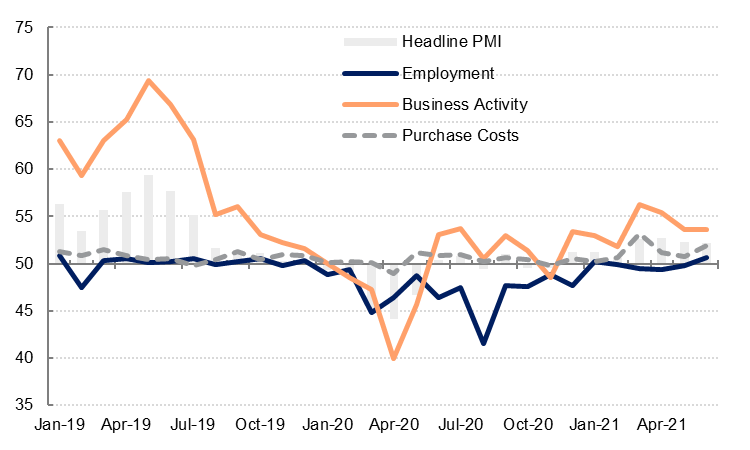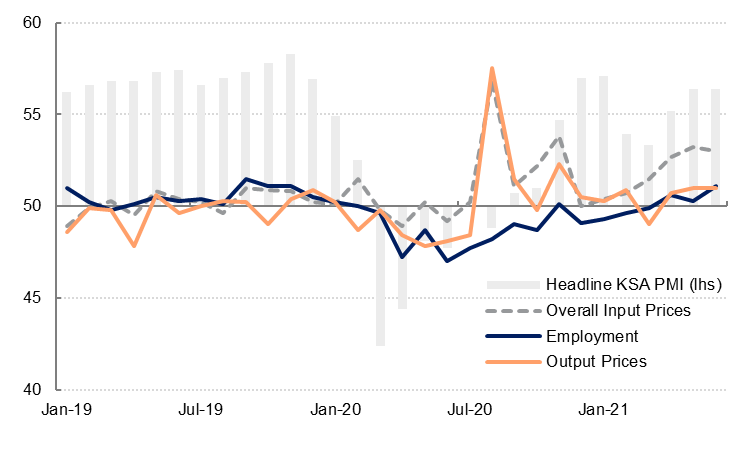The UAE headline PMI was fractionally lower in June at 52.2 compared with 52.3 in May. Business activity and new orders increased in June but the latter was at a slower rate than in May. Tighter travel restrictions weighed on new work from abroad last month, but this appears to have been offset by stronger domestic demand which supported overall new order growth. Encouragingly, employment in the private sector increased slightly in June, the first rise in jobs since January. Firms were also slightly more optimistic about their outlook for the coming twelve months than they were in May, with the future output index at the highest level in almost a year.
However, shortages of raw materials and longer shipping times pushed up input costs in June, and some firms passed on some of these higher costs to buyers – output prices increased fractionally in June for only the second time in almost three years. Suppliers’ delivery times lengthened for the fifth month in a row in June. Some firms indicated that shortages of raw materials were starting to hamper the growth in business output.
The PMI data supports our view of a gradual recovery in the UAE’s non-oil sectors this year. The average PMI reading for Q2 21 is 52.4, the highest quarterly average since Q3 2019. We retain our forecast of 3.5% growth in non-oil GDP this year.
 Source: IHS Markit, Emirates NBD Research
Source: IHS Markit, Emirates NBD Research
Saudi Arabia’s headline PMI was unchanged in June at 56.4, as faster growth in new orders offset slower – but still strong- growth in business activity. New order growth in the kingdom grew at the fastest rate in six months, supported by strengthening domestic demand as Covid-19 restrictions were eased, as well as growth in new export orders. Employment in the private sector rose at the fastest rate since November 2019, with this sub-index rising to 51.1. Firms were more optimistic about the outlook over the coming year, as they expected Covid-19 related restrictions on activity to be further eased.
Higher raw material prices have contributed to rising input costs in Saudi Arabia as well, but vendor performance in the kingdom has improved with suppliers’ delivery times shortening for the third month in a row. Firms increased selling prices for the third consecutive month in response to higher input costs. Nevertheless, we expect headline consumer inflation to slow sharply in H2 2021 once last July’s VAT increase is in the base.
 Source: IHS Markit, Emirates NBD Research
Source: IHS Markit, Emirates NBD Research